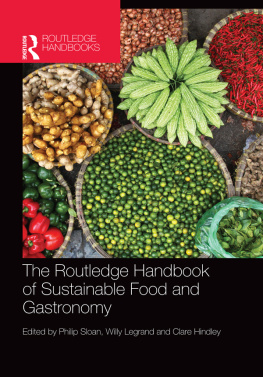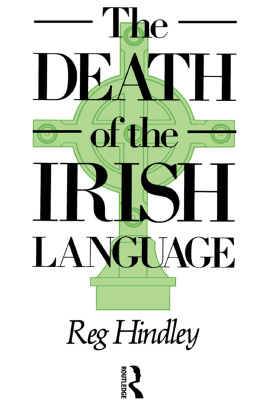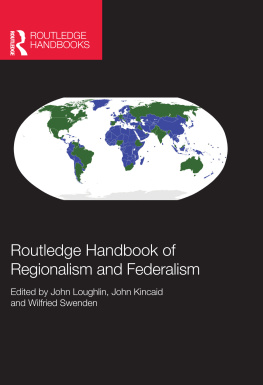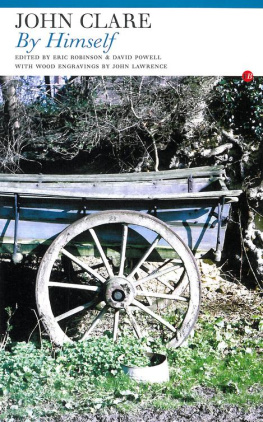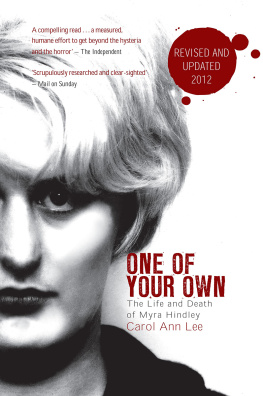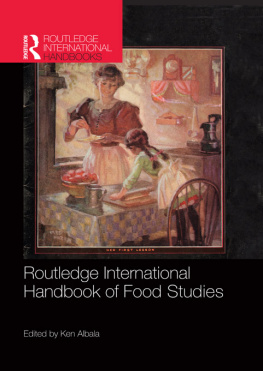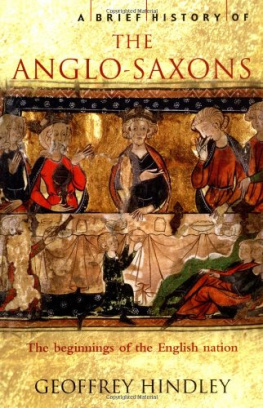Hindley Clare - The Routledge handbook of sustainable food and gastronomy
Here you can read online Hindley Clare - The Routledge handbook of sustainable food and gastronomy full text of the book (entire story) in english for free. Download pdf and epub, get meaning, cover and reviews about this ebook. year: 2015, publisher: Routledge Taylor & Francis Group, genre: Politics. Description of the work, (preface) as well as reviews are available. Best literature library LitArk.com created for fans of good reading and offers a wide selection of genres:
Romance novel
Science fiction
Adventure
Detective
Science
History
Home and family
Prose
Art
Politics
Computer
Non-fiction
Religion
Business
Children
Humor
Choose a favorite category and find really read worthwhile books. Enjoy immersion in the world of imagination, feel the emotions of the characters or learn something new for yourself, make an fascinating discovery.
- Book:The Routledge handbook of sustainable food and gastronomy
- Author:
- Publisher:Routledge Taylor & Francis Group
- Genre:
- Year:2015
- Rating:5 / 5
- Favourites:Add to favourites
- Your mark:
- 100
- 1
- 2
- 3
- 4
- 5
The Routledge handbook of sustainable food and gastronomy: summary, description and annotation
We offer to read an annotation, description, summary or preface (depends on what the author of the book "The Routledge handbook of sustainable food and gastronomy" wrote himself). If you haven't found the necessary information about the book — write in the comments, we will try to find it.
Hindley Clare: author's other books
Who wrote The Routledge handbook of sustainable food and gastronomy? Find out the surname, the name of the author of the book and a list of all author's works by series.
The Routledge handbook of sustainable food and gastronomy — read online for free the complete book (whole text) full work
Below is the text of the book, divided by pages. System saving the place of the last page read, allows you to conveniently read the book "The Routledge handbook of sustainable food and gastronomy" online for free, without having to search again every time where you left off. Put a bookmark, and you can go to the page where you finished reading at any time.
Font size:
Interval:
Bookmark:
First published 2015
by Routledge
2 Park Square, Milton Park, Abingdon, Oxon OX14 4RN
and by Routledge
711 Third Avenue, New York, NY 10017
Routledge is an imprint of the Taylor & Francis Group, an informa business
2015 Editorial matter and selection: Philip Sloan, Willy Legrand and Clare Hindley; individual chapters: the contributors.
The right of Philip Sloan, Willy Legrand and Clare Hindley to be identified as the author of the editorial material, and of the authors for their individual chapters, has been asserted in accordance with sections 77 and 78 of the Copyright, Designs and Patents Act 1988.
All rights reserved. No part of this book may be reprinted or reproduced or utilised in any form or by any elec tronic, mechanical, or other means, now known or here after invented, including photocopying and recording, or in any information storage or retrieval system, without permission in writing from the publishers.
Trademark notice: Product or corporate names may be trademarks or registered trademarks, and are used only for identification and explanation without intent to infringe.
British Library Cataloguing in Publication Data
A catalogue record for this book is available from the British Library
Library of Congress Cataloging in Publication Data
The Routledge handbook of sustainable food and gastronomy / edited by Philip Sloan,
Willy Legrand and Clare Hindley.
Includes bibliographical references and index.
1. Food supplyEnvironmental aspects. 2. Food industry and tradeEnvironmental aspects.
3. Gastronomy. I. Sloan, Philip. II. Legrand, Willy. III. Hindley, Clare.
HD9000.5.R68 2015
338.190286dc23
2014042676
ISBN: 978-0-415-70255-3 (hbk)
ISBN: 978-0-203-79569-9 (ebk)
Typeset in Bembo
by RefineCatch Limited, Bungay, Suffolk, UK

Andiamo a mangiare aqualcosa
Lets go eat something!
We say this phrase all the time, but often without considering what we really mean. That indefinite something reveals a lot about our current relationship with food. The overabundance of food choices growing through industrialization and globalization makes us think our needs are met. But actually, this thoughtless feeding has alienated us from what, for most of human history, has been an object of sacredness and deep respect. Food has lost its value, and we are forgetting ours.
How many times in our lives have food or drink been a key part of a gathering, and how many times have they contributed to making it special? How many times in our lives have we booked a table in a restaurant, not only out of a need to quench our thirst and sate our hunger? In these ways, our daily choices develop into a larger system of values, a universe of hospitality, which informs how we nourish ourselves and each other and the earth that sustains us.
The concept of global sustainability started to be developed in the 1970s, largely in response to the overconsumption of natural resources. It took another 20 years, however, for a broader vision of sustainable development to arise in many other areas of society, including those surrounding food. The pioneers of this movement inspired new ways of thinking, introducing progressive ideas such as food sovereignty and the right to healthy food to the public agenda.
The fervour fuelled by these movements, and further taken up by the scientific community and the media, has helped to spread awareness of many vital issues related to our food systems. These affect everyone building robust local economies, revalorizing the landscape and improving animal welfare, among other things. All of these topics are interconnected, and are unavoidable when we speak of food and sustainability in the world today.
Yet there are examples of solutions to these complex problems all around us. When we look to communities where food and gastronomy and hospitality have value, it becomes clear how food functions as a social glue, holding these communities together and maintaining the delicate balance of ecology, history, economy and culture that is the foundation of true sustainability. Engaging with these diverse communities and their particular qualities and needs is thus of great importance if we want to be able to investigate food in any meaningful way.
As a chef, I notice how the exploration of these interconnections from different perspectives has been changing how many of us interact with the wider food world. More and more of us are directing our focus to our immediate local surroundings, drawing inspiration from our specific place and time. We are discovering and rediscovering our unique and diverse histories, shaping our own gastronomic identities through cooking in the context of our larger environments.
Nevertheless, despite this growing environmental awareness in cooking, the persistence of many other problems such as job insecurity, insufficient salaries, extreme commodification, food waste and the devaluation of living an agricultural life are signs that our current approach to sustainability is fundamentally incomplete. One of the most powerful aspects of this manual is that it makes us confront the paradox of unsustainable sustainability, a narrow model that only takes environmental factors into account. This handbook stimulates us to re-envision the role of food and gastronomy in creating a more holistic model of truly sustainable development for humanity and the planet. It offers examples of best practices for how to engage with such diverse realities, and creates part of the necessary foundation for more sustainable gastronomy. The wide-angle approach adopted by the authors and editors provides us with a broad perspective of the different actors involved and these many intricate connections between people, food, and the environment. In short, it is an essential working tool for those who wish to acquire a deeper knowledge of this complex subject.
I am proud to recommend this book in the hope of helping to grow the emerging global gastronomic revolution. This revolution must be supported by knowledgeable people who work in synergy across many different areas of food and its systems, developing new standards and strategies towards a world where the only hunger that persists is that for knowledge.
Roberto Flore
Head Chef at the Nordic Food Lab
Copenhagen, Denmark
Charles Barneby holds a BS in Hotel and Restaurant Management from the University of New Haven, where he is currently pursuing an MSc in Community Psychology.
Sean Beer is an academic with a passionate interest in the interaction between tourism, culture, food, the countryside and the food supply chain. Originally he trained as an agricultural scientist, gaining a BSc in Agriculture from Reading, a DipAgSci from Massey University in New Zealand and a CertEd from Wolverhampton. This academic work has been backed up with considerable practical experience in agriculture, marketing, the food supply chain and the rural economy in general, gained on the family farm and within associated family businesses and the food industry, both local and international. He is currently a senior lecturer in the School of Services Management at Bournemouth University. He has been awarded a Rotary Foundation Scholarship, a Winston Churchill Fellowship and he is a Nuffield Scholar.
Sonja Beier graduated from the International University of Applied Sciences, Bonn, with a degree in Hospitality Management. She now lives in Cologne, Germany and is a consultant with Oscar GmbH, Cologne. Sonja.Beier@iubh.de
Tracy Berno did her PhD fieldwork in the Cook Islands more than 20 years ago. This was the start of an enduring relationship with the Pacific that has seen her living and working in the Pacific region since, including being head of the Tourism and Hospitality Department at the University of the South Pacific (USP) for many years. As a tourism academic and consultant, Tracys main area of interest has been the relationship between local agricultural production and the tourism and hospitality industry. With a catering and cooking background, Tracy has always had a strong interest in sustainable cuisine. This grew into a research programme focusing on how the produce and cuisines of the South Pacific could be highlighted as part of tourism, and how these linkages could support integrated rural development and sustainable livelihoods. Tracy has researched and published in this area, as well as contributed to cookery books in New Zealand and the Pacific. Tracy is an associate professor at Lincoln University in New Zealand.
Font size:
Interval:
Bookmark:
Similar books «The Routledge handbook of sustainable food and gastronomy»
Look at similar books to The Routledge handbook of sustainable food and gastronomy. We have selected literature similar in name and meaning in the hope of providing readers with more options to find new, interesting, not yet read works.
Discussion, reviews of the book The Routledge handbook of sustainable food and gastronomy and just readers' own opinions. Leave your comments, write what you think about the work, its meaning or the main characters. Specify what exactly you liked and what you didn't like, and why you think so.

